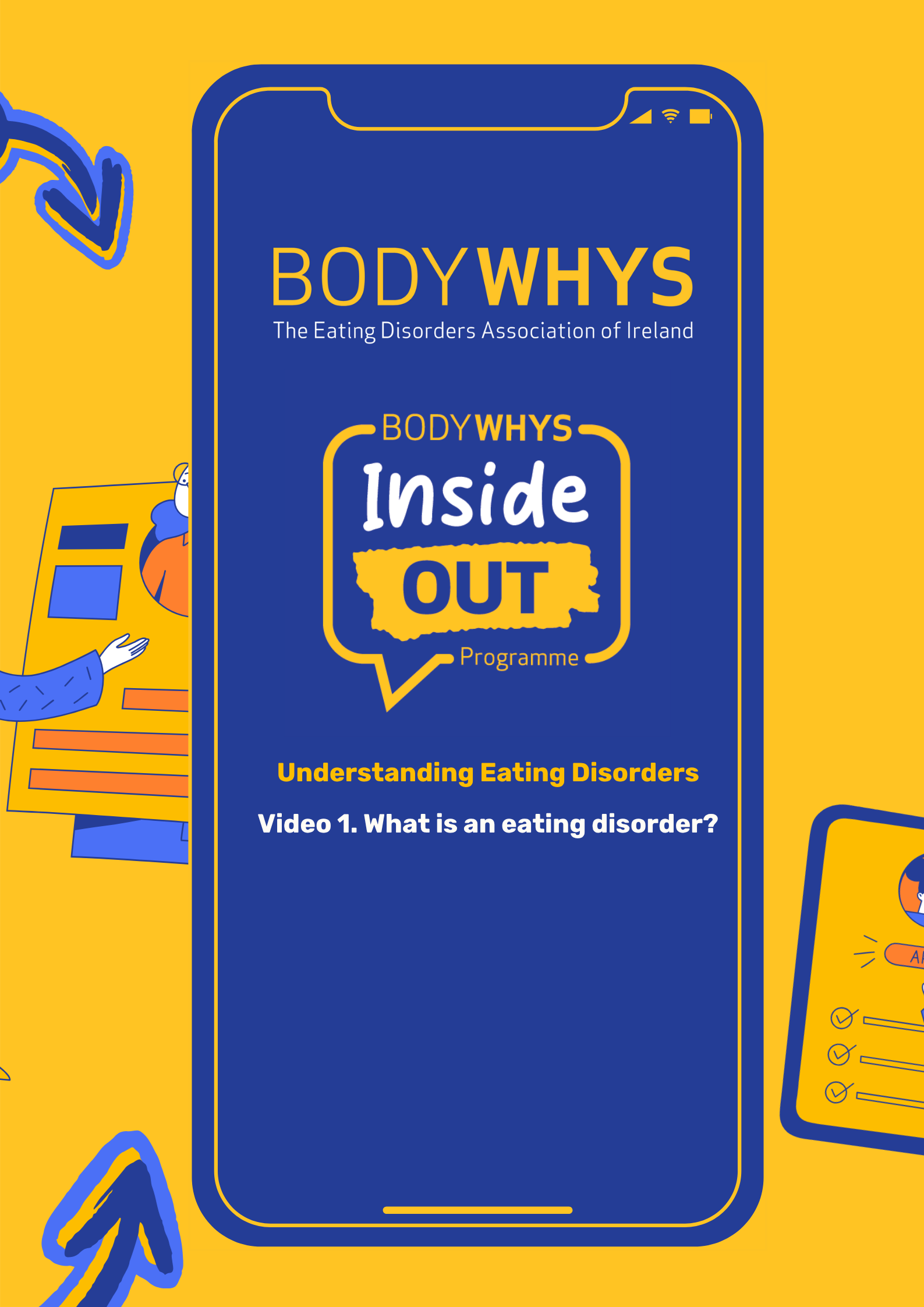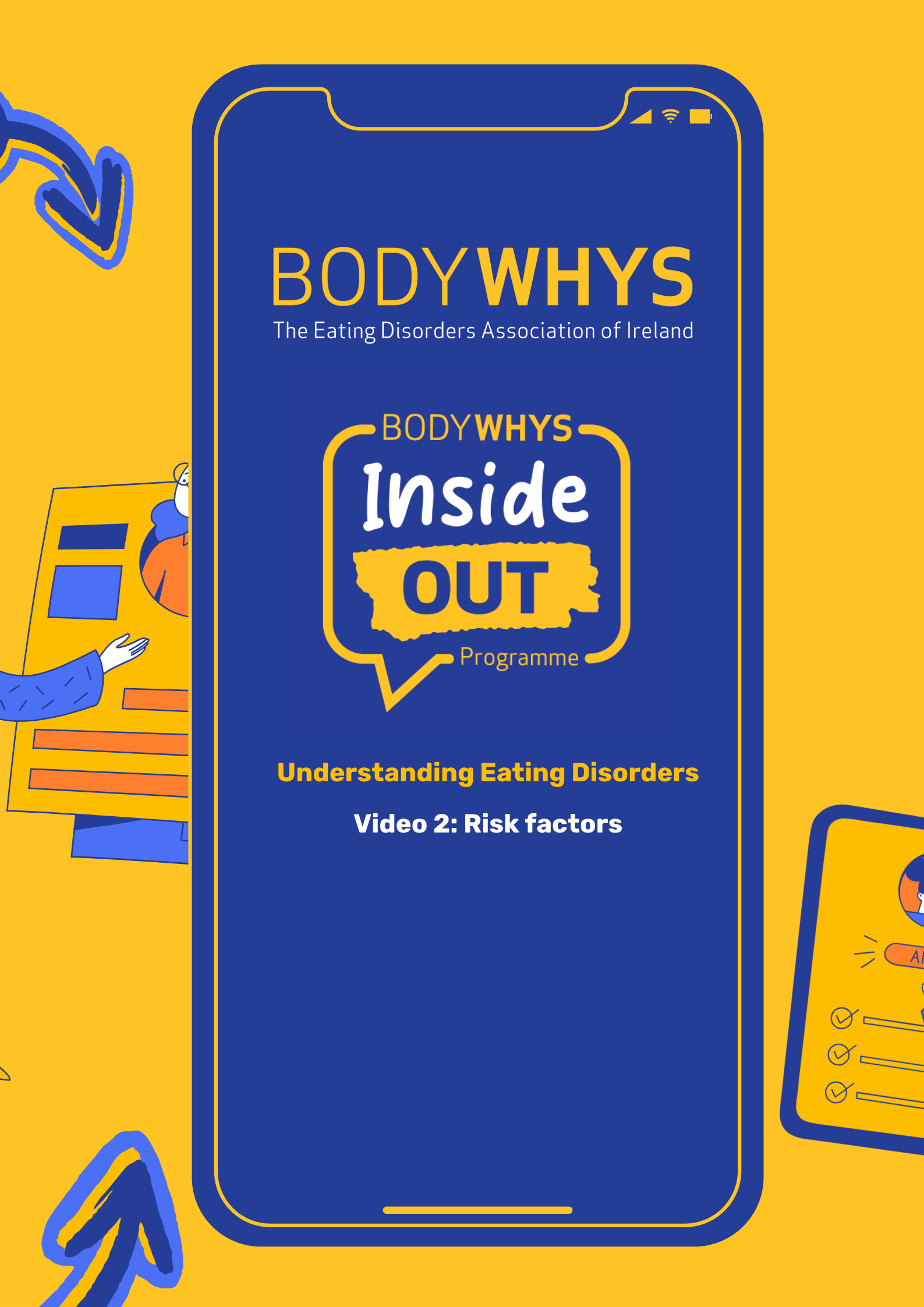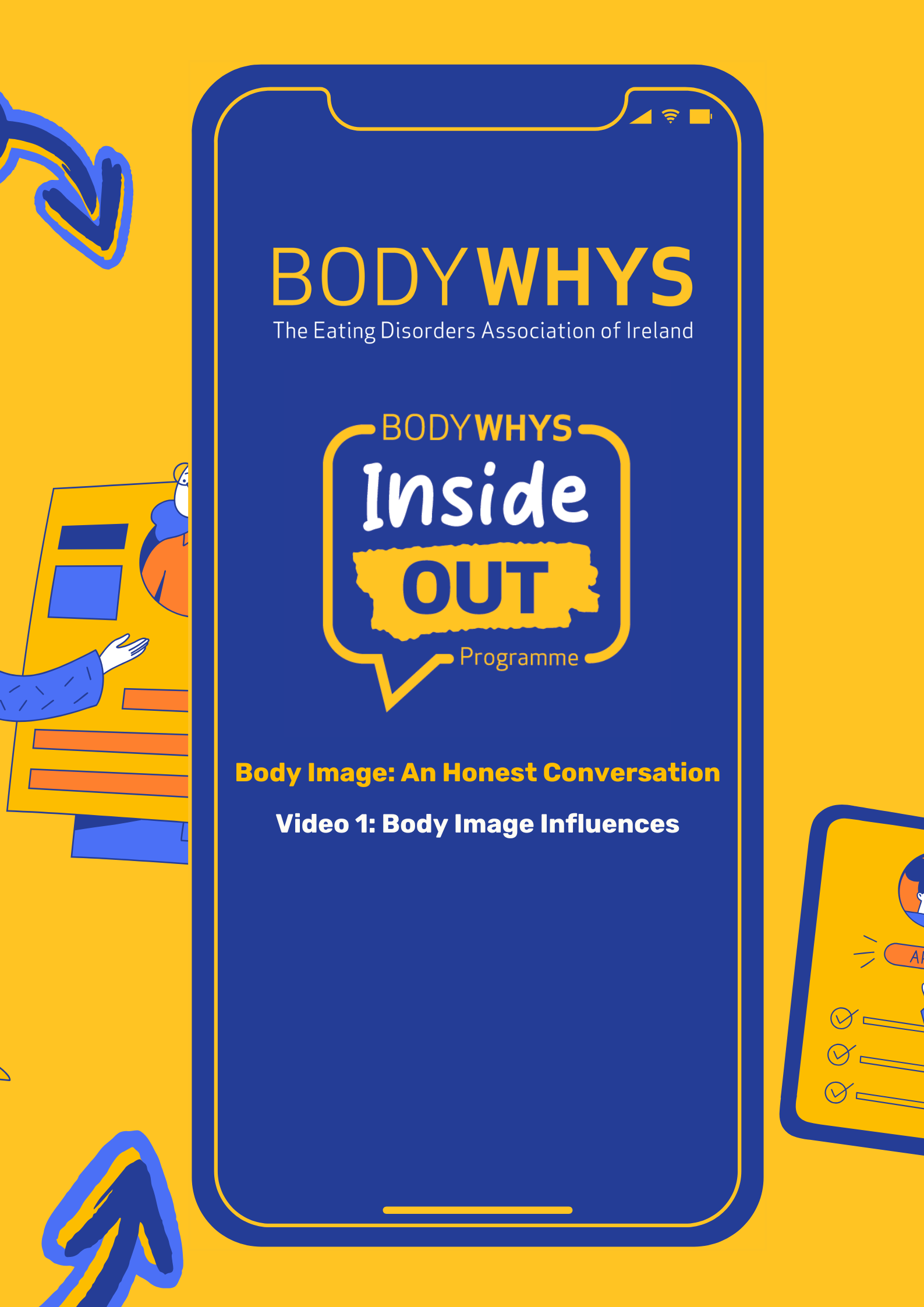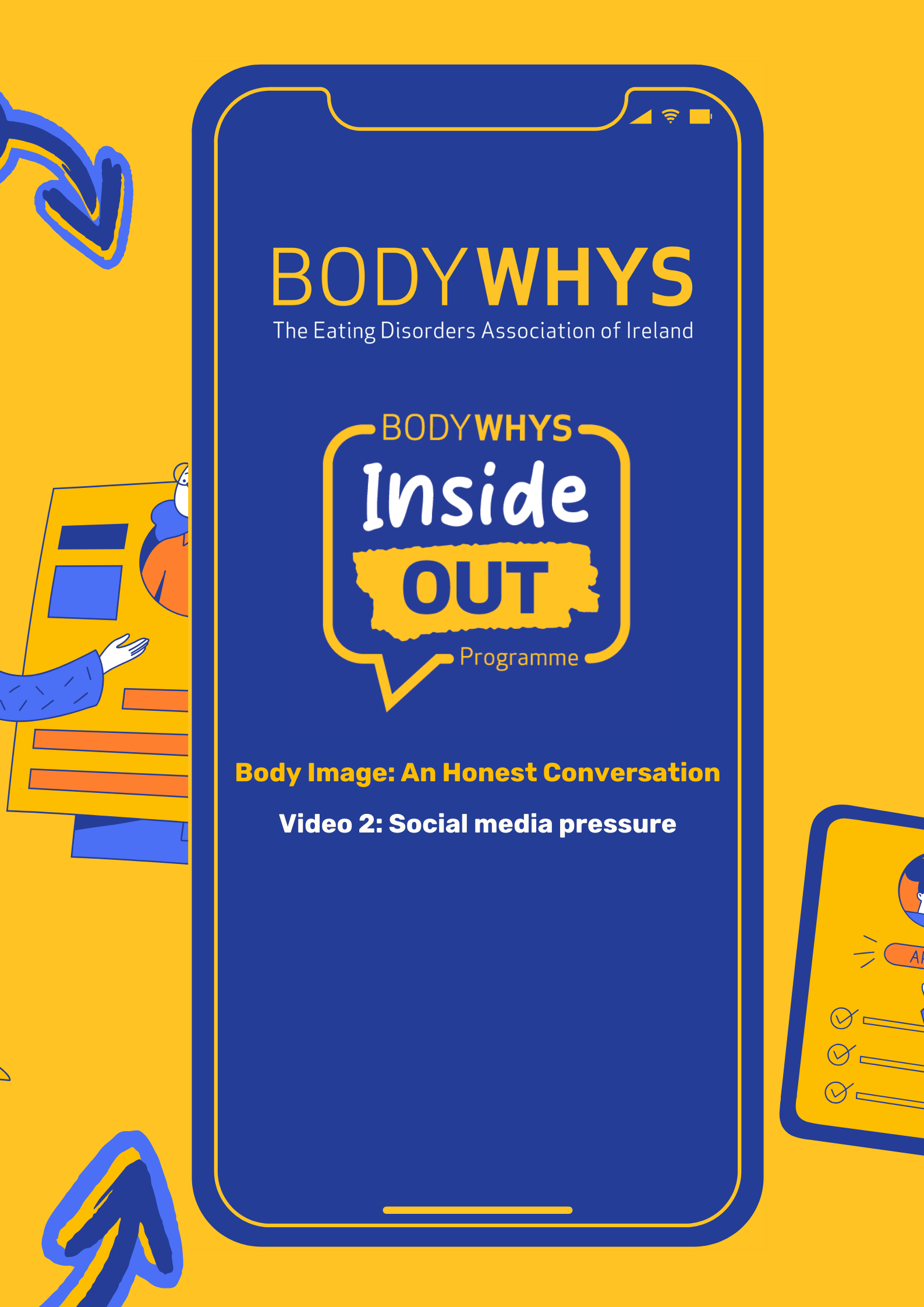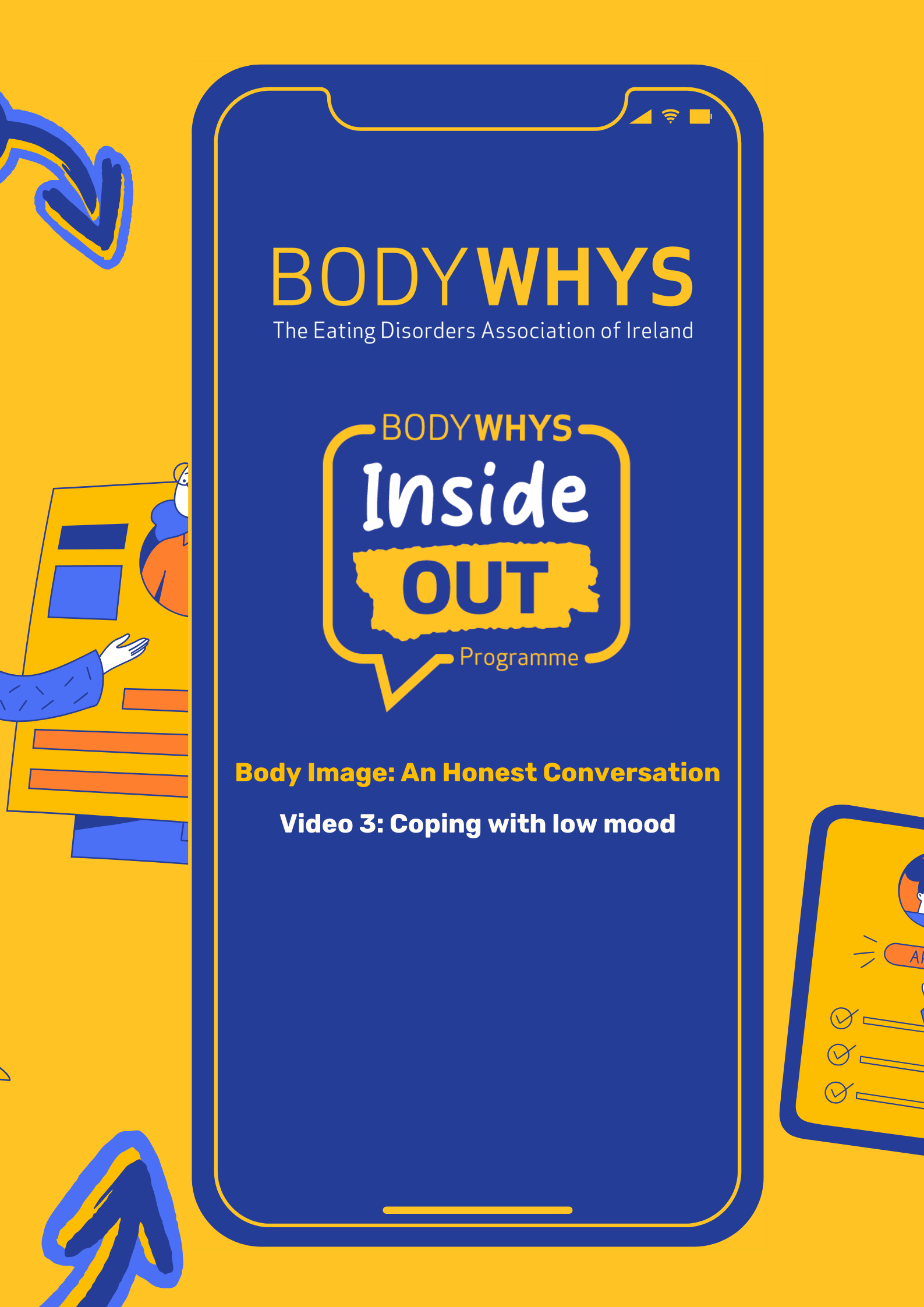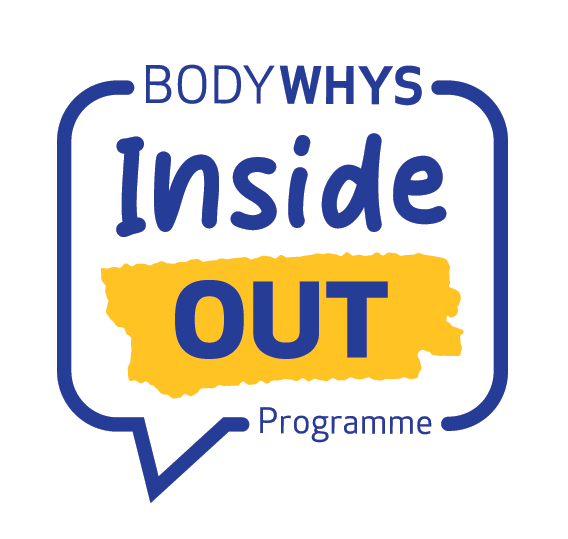Secondary School Resources
The Bodywhys ‘Inside Out’ Programme
The Bodywhys ‘Inside Out’ Programme
Teacher Testimonials
“You have thought of everything. I can’t wait to use these resources with my class”
“it’s so needed - it’s one part of the SPHE programme that we don’t really do - there’s not a lot of resources on body image or eating disorders”
“It’s so relatable - it’s all so relevant and so important - really well done”
“it’s just incredible I think this will be really brilliant in classrooms with boys and with girls”
-
Description text goes hereThis two-part educational resource is designed to improve body image and social media literacy in students through open discussion and expert-led learning. It is also designed to promote awareness and understanding of eating disorders and the supports and treatment options available. Developed by Bodywhys – The Eating Disorders Association of Ireland, in collaboration with teachers, young people and mental health professionals the lessons combine professional insights, lived experience perspectives, and interactive classroom activities. By combining expert information with real voices and interactive exercises, the resource supports both knowledge development and emotional growth, helping students foster positive mental health and compassion for themselves and others..
The programme aims to help students:
Develop a clear understanding of eating disorders and their impact
Improve body image and social media literacy
Promote body acceptance, self-compassion, and healthy relationships with food, exercise, and appearance
Learn practical ways to support themselves and others
Each lesson includes expert video content, real-life stories, and guided worksheets featuring both group and individual exercises designed to encourage reflection and discussion.
-
Lesson 1: Understanding Eating Disorders
This lesson introduces students to the topic of eating disorders through clear, accessible information presented by experts from Bodywhys. It outlines what eating disorders are, explores risk factors, and explains how these conditions affect a person emotionally, psychologically, behaviourally, and physically. Students also hear from four individuals with lived experience of an eating disorder, who share their personal journeys through illness and recovery, offering valuable insight and hope.
Learning Outcomes:
By the end of this lesson, students will:
Know what an eating disorder is and describe key types
Be aware of common risk factors and warning signs
Understand the wide-ranging impacts of eating disorders on mental and physical health
Recognise that recovery is possible and that help and support are available
Understand the importance of self-awareness, empathy, and seeking help early
Supporting Materials:
Expert video content featuring Bodywhys professionals and lived experience contributors
Student worksheets with individual and group exercises
Teacher guides with discussion prompts to promote awareness and understanding
Website information linked to the student worksheets with a range of resources for ongoing support and guidance.
-
Lesson 2: An Honest Conversation About Body Image
This lesson students to the topic of body through clear, accessible information presented by experts from Bodywhys. It describes what body image is and the role of body image in mental health. This lesson also includes real, honest and engaging video content of sixteen young people from youth organisations around Ireland (Comhairle na nÓg, BeLong To, Spunout, Webwise and Bodywhys) describing the pressures to body image in young people, including media messages, social media, peer pressure and their practical advice on what works for them in navigating body image pressures and difficult feelings.
Learning Outcomes:
By the end of this lesson, students will:
Be aware of the factors that influence body image
Identify how media and social pressures can create unrealistic body expectations and how to challenge these
Understand the role of self compassion to wellbeing and have practical tools to promote self-compassion
Recognise ways to build a positive and accepting relationship with their body
Supporting Materials:
Video content including expert input and engaging youth discussion
Student worksheets with individual and group exercises
Teacher guides with discussion prompts to promote awareness and understanding
Website information linked to the student worksheets with a range of resources for ongoing support and guidance
How to Use this Resource
Preparation time: 10 minutes
Read through the teacher information sheet on ‘things to consider before getting started’ and/or watch the training video
Scroll down to the lesson you wish to use.
Print the Teacher’s Guide which includes suggestions, prompts and responses which correspond to the student worksheets (4 pages)
Print student worksheets (4 pages) for each student in the group OR display the relevant Student worksheet on the interactive white board
Week 1: Understanding Eating Disorders
Week 1. Teacher’s Guide
You will need to print off the teachers guide for Week 1: Understanding Eating Disorders before the lesson. Please click on this link to download and print the Week 1. Teacher’s Guide.
Week 1. Student Worksheets
Please click here to download and print the Week 1. Student worksheets. You can also open the worksheets on a separate tab to view on the interactive whiteboard.
Video 1: What is an eating disorder?
Before you start: Before introducing lessons on eating disorders, it’s important to create a safe, respectful, and supportive classroom environment. These topics can be sensitive and may affect some students personally. Establish clear ground rules for discussion — such as listening without judgment, respecting others’ privacy, and not comparing bodies or experiences. Teachers should familiarise themselves with school wellbeing supports and know how to signpost students to appropriate help, such as the guidance counsellor or Bodywhys. If a student becomes upset or discloses personal concerns, follow school safeguarding procedures and seek advice from relevant staff.
Summary: This video includes expert input from Dr Fiona Flynn and Molly Nee at Bodywhys explain what an eating disorder is. This video also introduces Conor, Sinead, Ciara and Julie who will tell their stories about how having an eating disorder impacted their lives and their journey to full recovery
Video 2: Risk Factors for developing an eating disorder
Summary: This video includes expert input from Bodywhys on the risk factors for developing an eating disorder. This video follows the stories of Conor, Sinead, Julie and Ciara to illustrate how their eating disorder started and how to recognise the early warning signs of an eating disorder.
Video 3: effects of an eating disorder
Summary: This video outlines the impact that an eating disorder can have on every aspect of a person’s life - emotional, psychological, behavioural and physical. The lived experience perspectives of Julie, Conor, Sinead and Ciara highlight the real and significant impact of an eating disorder and the importance of seeking treatment.
Video 4: Recovery & treatment Options
Summary: This video highlights the journeys to recovery for Ciara, Julie, Conor and Sinead. It highlights the importance of seeking help, illustrates the fact that full recovery is possible with the right treatment and signposts to relevant Bodywhys supports for additional information.
Week 2: An Honest Conversation About Body Image
Week 2: Teacher’s Guide
You will need to print off the teachers guide for Week 2: An Honest Conversation About Body Image before the lesson. Please click on this link to download and print the Week 2. Teacher’s Guide.
Week 2: Student Workbook
Please click here to download and print the Week 1. Student worksheets. You can also open the worksheets on a separate tab to view on the interactive whiteboard.
Video 1: Body Image Influences
Summary: Body image is a key issue affecting youth mental health. This video includes expert input from Dr Fiona Flynn and Molly Nee at Bodywhys and introduces 16 young people from around Ireland who met on one day in July 2025 to discuss body image influences and how to challenge negative pressures to body image.
Video 2: Social Media Pressure
Summary: This video includes honest conversations about body image pressure from social media and practical ways to lessen negative pressures. It also includes expert input from Bodywhys.
Video 3: Coping with low mood
Summary: This video includes honest discussion on ways to recognise that you are not in good form and practical and positive ways to cope with difficult moods. This video also features expert input from Bodywhys
Video 4: Practical Ways To Improve Body Image
Summary:


